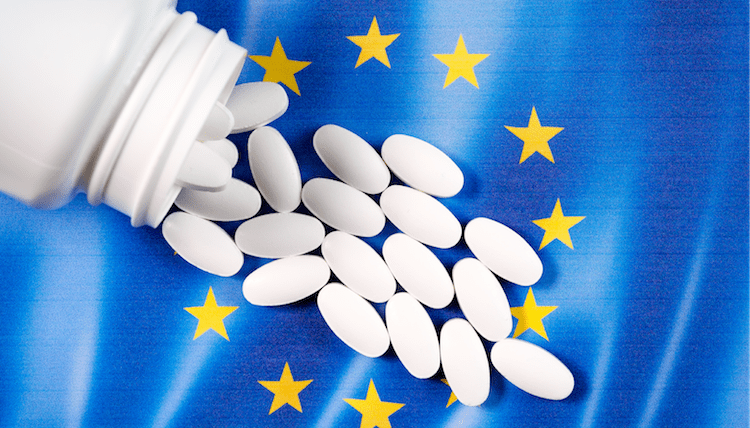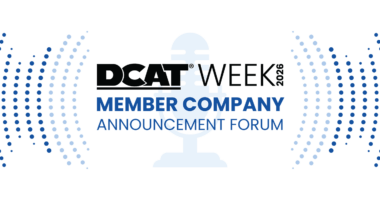Changing the Rules of the Game for APIs in the EU
Innovator and generic-drug companies are squaring off as European Union (EU) authorities draw closer to adopting an export manufacturing waiver for supplementary protection certificates (SPCs). Biosimilar/generic-drug companies and manufacturers of active pharmaceutical ingredients (APIs) say the waiver is needed as they face competitive disadvantage with non-EU companies. Where does the measure now stand?
Inside the battle over SPCs
SPCs extend protection of patented medicines in the EU by up to five years to compensate for the time lost in obtaining regulatory approval of the medicine. During this period, European manufacturers of generic drugs and biosimilars cannot produce their medicines in the EU. The purpose of the original EU legislation that authorized SPCs, which was enacted in 1992, was to recompense product-development companies for the time taken to obtain regulatory approval of their medicines and give them longer market exclusivity in the form of a SPC. The SPC regulation, however, according to some, has had the unintended effect of putting the European generic-drug, biosimilar, and active pharmaceutical ingredient (APIs) manufacturing industries at a competitive disadvantage vis-à-vis manufacturers producing in non-EU countries where no similar patent/SPC protection exists. During the time of SPC protection, EU-based manufacturers of generic drugs or biosimilars cannot produce generic or biosimilar versions of these medicines for sale in the EU, export these medicines to countries where the SPC does not apply, or produce and stockpile medicines for the EU market in advance of the day of SPC expiry. Critics of SPCs say that European manufacturers are currently required to outsource production outside Europe to supply countries without SPCs or where SPCs expire earlier than in Europe in order to provide competition as soon as SPCs expire in Europe.
As part of its Single Market Strategy, the European Commission (EC) proposed in May 2018 a regulation to address several key issues with respect to SPCs. First, the EC wanted to address the loss of export markets, including new business opportunities, and a lack of timely (meaning Day-1) entry into EU member states following expiry of the SPC for EU-based manufacturers of generics and biosimilars.
Second, the EC also wanted to address what it called the “fragmented implementation” of the SPC regime in EU member states and of the Bolar patent exemption. The Bolar patent exemption speeds entry of generic medicines into the market by allowing early preparatory development on generics to obtain pre-market regulatory approval even when the SPC of the reference medicine is still in force. The Bolar exemption is regulated at the EU level for the pharmaceutical industry only. The scope of the EU Bolar exemption has been updated in some EU countries to meet new pharmaceutical-related requirements. The Bolar exemption enables generic and biosimilar medicine developers to undertake research and development in order to obtain regulatory approval for their products.
The EC’s proposal calls for a manufacturing waiver during the term of an SPC that would take the form of an “exception,” or in other words, a restriction, to the protection conferred to the SPC. It would allow generic and biosimilar developers to manufacture, in an EU member state during the term of an SPC, for the exclusive purpose of exporting their products to non-EU markets where patent or SPC protection has expired or never existed.
Status of the SPC manufacturing waiver
The EC’s proposal would amend EU Regulation 469/2009 on SPCs for medicinal products subject to the adoption by the European Parliament, the legislative body of the EU, and the European Council, which is composed of the heads of state or government of the 28 EU member states, the European Council President, and the President of the EC, and which sets policy priorities and strategy. If adopted, the measures in the proposal would be directly applicable in all EU member states and be subject to review after five years, according to the EC proposal.
In mid-January 2019, the Committee of the Permanent Representatives of the Governments of the Member States to the European Union (Coreper) met to consider the European Council’s draft regulation that grants a manufacturing exception to SPCs. EU ambassadors in Coreper agreed on the Council’s position on a draft regulation that introduces an exception for manufacturing for export purposes (i.e., manufacturing waiver) to the protection granted to an original medicine by an SPC. Under the waiver, EU-based makers of generics and biosimilars will be entitled to manufacture a generic or biosimilar version of an SPC-protected medicine during the term of the SPC if done exclusively for the purpose of exporting to a non-EU market where protection has expired or never existed.
”The draft regulation is expected to remove the competitive disadvantages faced by EU-based manufacturers of generics and biosimilars vis-à-vis manufacturers established outside the EU in global markets, but also in Day-1 EU markets by building up production capacity,” said the European Council in a January 16, 2019 statement.
The exception or manufacturing waiver will operate only where:
- generics or biosimilars are produced exclusively for export to third countries (third countries are countries not in the EU or in the European Free Trade Association, which includes EU member states and Iceland, Norway, Liechtenstein, and Switzerland) where protection of the original medicine does not exist or has expired;
- the maker has provided the information required by the regulation to both the authorities of the member state of production and to the holder of the SPC at least three months in advance;
- the maker has duly informed all those involved in the commercialization of the product covered by the exception that the product can be put on the market only outside the EU;
- the maker has affixed to the packaging of the product the specific logo provided for by the regulation indicating clearly that it is only for export.
Until a set date (three years from the entry into force of the regulation), the regulation will affect only SPCs that are applied for on or after the date of entry into force of the regulation. From then on, the regulation will also affect SPCs applied for before the entry into force of the regulation, but which have become effective after the entry into force of the regulation.
As to next steps, once the European Parliament agrees on a negotiating mandate, the Romanian presidency (who is now leading the European Council) will start negotiations with the European Parliament with the aim of adopting the regulation at first reading, according to the European Council. The presidency of the European Council rotates among the EU member states every six months. During this six-month period, the presidency chairs meetings at every level in the European Council to ensure the continuity of the EU’s work in the Council. Member states holding the presidency work together closely in groups of three, called trios. The trio sets long-term goals and prepares a common agenda determining the topics and major issues that will be addressed by the European Council over an 18-month period. On the basis of this program, each of the three countries prepares its own more detailed six-month program. The current trio is made up of the presidencies of Romania, Finland, and Croatia.
In moving forward with the draft regulation for a manufacturing waiver for SPCs, the European Council pointed to economic benefits to the EU based on expected increased market penetration of generics and biosimilars. It offered market data that showed that assuming an annual growth rate of 6.9%, based on a global pharmaceutical market of EUR 1.1 trillion ($1.25 trillion) in 2017, by 2020 generics and biosimilars will represent 80% of all medicines by volume and about 28% by value. It estimates that over EUR 90 billion ($103 billion) of first-generation of blockbuster biologics will become open to biosimilar competition by 2020.
”The draft regulation should contribute to Europe’s competitiveness as a hub for pharmaceutical R&D and manufacturing,” said the European Council in its January 16, 2019 statement. “It will help new pharmaceutical companies start up and scale up in high growth areas and is projected to generate, over the next 10 years, additional net annual export sales of well in excess of EUR 1 billion [$1.14 billon], which could translate into 20,000 to 25,000 new jobs over that period.”
Further amendments to the SPC manufacturing waiver and industry feedback
Further amendments by committees of the European Parliament have called for additional changes to the SPC manufacturing waiver. The Legal Committee of the European Parliament (JURI), which combines the opinions of the European Parliament’s Committee on Environment, Public Health and Food Safety (ENVI) and the Committee on International Trade (INTA), voted on January 23, 2019 on several additional measures relating to the SPC manufacturing waiver, which were largely supported by Medicines for Europe, which represents generic-drug and biosimilar companies in Europe and opposed by the European Federation of Pharmaceutical Industries and Associations (EFPIA), which represents innovator, research-based pharmaceutical companies in Europe.
The compromise agreement by the JURI Committee includes the possibility to produce generic and biosimilar medicines during the SPC period for export purposes and to stockpile for two years to prepare for launch in the EU on Day-1 after SPC expiry, a move supported by Medicines for Europe.
”This will stop the forced delocalization of pharmaceutical manufacturing outside of Europe and is a positive step forward to allow all manufacturers including SMEs [small and medium-sized enterprises] to benefit from the manufacturing waiver,” said Medicines for Europe in a January 23, 2019 statement. “More importantly, patients and member states’ healthcare budgets will benefit from immediate access to generic and biosimilar medicines manufactured in Europe as soon as SPCs expire. The Parliament’s position is fully justified by the European Commission Impact assessment, which underlines ‘an SPC manufacturing waiver for export and stockpiling would be the most effective and simplest option,’” said Medicines for Europe in its statement.
The JURI committee also voted to implement the SPC manufacturing waiver starting in January 2021. ”While there is further room for improvement, this represents another step in the right direction to ensure that the SPC manufacturing waiver delivers on its promise of industrial jobs and lower costs for patients and healthcare systems,” said Medicines for Europe in its statement.
Medicines for Europe also supported the JURI committee’s proposal regarding protection of confidential information in notification procedures under the SPC manufacturing waiver. “The JURI committee also recognizes the importance of protecting the right of manufacturers to keep commercially sensitive information confidential in the context of the notification procedure,” said Medicines for Europe in its January 23, 2019 statement. “We hope this common-sense approach will be reflected in the final text of the SPC manufacturing waiver. However, we do not understand the logic of including falsified medicines requirements–which are for patient safety–into an EU regulation on pharmaceutical incentives.”
Overall, Medicines for Europe supports the changes proposed by the European Parliament committees. “The Parliament has made a thorough review and introduced many positive changes to the SPC manufacturing waiver proposal,” said Medicines for Europe Director General, Adrian van den Hoven in the organization’s January 23, 2019 statement. “With some further fine-tuning of this text in the trialogue phase, the SPC manufacturing waiver will deliver on its promise for patient access, for pharmaceutical manufacturing jobs, and for sustainable healthcare budgets in Europe.”
EFPIA, in offering the position of innovator pharmaceutical companies in Europe, however, disagreed with the amendments to the draft regulation for SPCs and the manufacturing waiver for SPCs. “Today’s [January 23, 2019] decision by the Legal Affairs Committee of the European Parliament (JURI) puts the future of medical innovation and access to the latest treatments for patients in Europe at risk,” said the EFPIA in a January 23, 2019 statement. “While we respect the position of the co-legislators, the amendments on two-year stockpiling, a very early implementation date and weakened safeguards, adopted today in JURI, cannot be reconciled with the objective of the duly assessed proposal of the European Commission. If adopted in the final text, the amendments will impact European patients living with unmet medical needs, they will significantly weaken Europe’s research and development offering, as well as drive away investment and jobs from our SMEs [small and medium-sized enterprises], our companies, our academic institutions and our healthcare systems.”
EFPIA Director Genera Nathalie Moll elaborated on what she sees as the negative impact of the JURI Committee amendments and the SPC manufacturing waiver overall. “Building a strong, stable, and predictable research and development eco-system has taken many years and included the unicity of the region having SPCs. Jeopardizing this system is particularly worrying when Europe’s attractiveness is already weakened by a number of political developments including the Brexit discussions, and other regions are strengthening their commitment to the knowledge-based economy and their IP [intellectual property] regimes.”
She further said: “We are at a crossroads between a future based on science, innovation and access for patients to cutting edge treatments or a future where European patients get, at best, today’s medicines using yesterday’s research. The EU institutions now have a very serious decision to make about what kind of future they want for Europe.”







